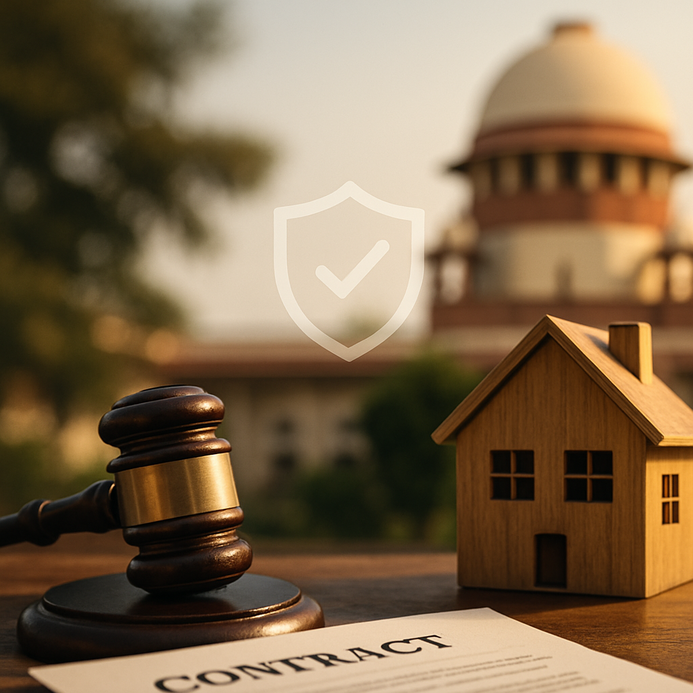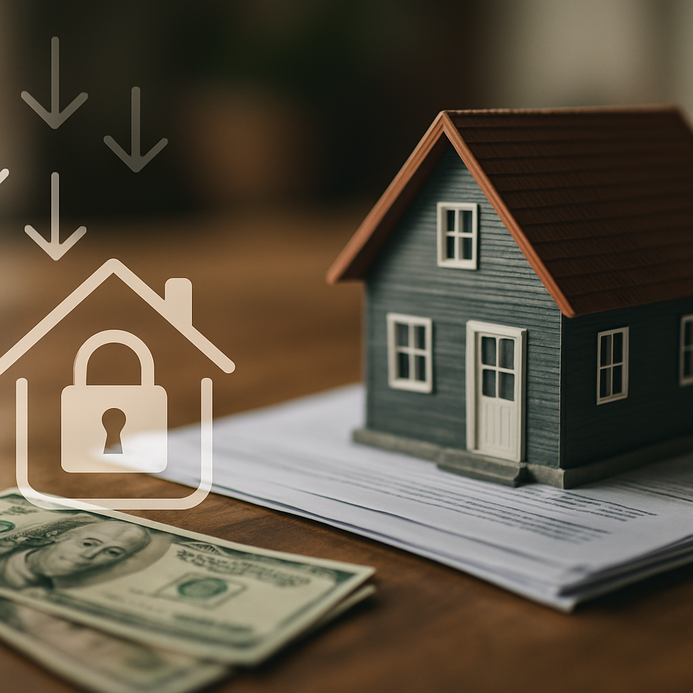Home Loan Resale Property: Rules For Selling Under-Construction Flats
Introduction to Under-Construction Apartment Sales
Under-construction apartments can be a goldmine for both investors and first-time homebuyers. Why? Think cost savings and the chance to make your space just the way you like it. But here’s the catch: selling or transferring these properties can feel like navigating a maze. If you’re planning to finance your new pad with a home loan, knowing the rules is absolutely essential.
Many folks buy these places with dreams of moving in. But life can change. Situations shift, and all of a sudden, selling becomes an option, or a necessity. However, you can’t just throw a “For Sale” sign up without understanding some basic regulations and the money matters involved.
Key Considerations for Selling an Under-Construction Apartment
1. Home Loan Eligibility: Before diving into a sale, check that any home loan you’ve got doesn’t complicate the process. Some banks have rules that can throw a wrench into selling properties under that loan. Need more info? Hit up this guide on home loans for resale flats.
2. Timing is Key: Have a look at where the construction stands. Most lenders will only step in with a loan after the building’s done. Bye-bye timeline misunderstandings!
3. Legal Check: Make sure you’ve got your builder-buyer agreement in check and that everything aligns with RERA (Real Estate Regulatory Authority) rules, so you don’t end up in legal hot water. Don’t forget: documents like your sale deed need to be spot on.
Financial Implications
Let’s talk money. Selling an under-construction apartment means you must keep an eye on financial angles, especially if a home loan’s involved. It can really tweak sale prices and who holds the mortgage. You’ll want to consider:
| Clearing Loans | If there’s still a loan on the property, you gotta sort that out before the sale goes ahead. |
| Market Value Assessment | Check how your place is valued in today’s market. Trends can fall in or out of favor quickly. |
Craving more info on resale property buying? Check out this informative article.
| Aspect | Consideration |
| Eligibility for Home Loans | Understand your lender’s conditions for property resale. |
| Legal Requirements | Ensure that all documentation, including RERA compliance, is in place. |
| Tax Implications | Review any capital gains tax that may apply when selling. |
In short, selling your under-construction apartment calls for a good grasp of legal and financial stuff. Stick to the rules, and you’ll not just find the selling process smoother but also make the most of your investment. Dive into our guides on assessing resale value and navigating home loans for even more insights.
Unveil the 50-50 payment plan
Key Rules for Reselling Before Registration
When you’re thinking about reselling, diving into the legal side is a must. Typically, a property waits for its Occupancy Certificate (OC) before being officially registered. However, selling it before that? Yeah, it’s sometimes doable, but there are hoops to jump through.
Legal Formalities
To transfer that shimmering under-construction apartment, you’ll need to present a clear title and the proper paperwork. That means a Sale Agreement and identity proof. The buyer should know the property’s condition, any issues? They should be totally disclosed. Oh, and don’t skip on due diligence; checking the builder’s background is non-negotiable.
Home Loan Resale Property Insights
Planning to snag a housing loan? Pre-approval is the name of the game. Bankers will ask for the Sale Agreement and other docs, make sure it spells out who’s responsible if construction’s delayed.
Potential Pitfalls
Uncertainty lurks around unclear agreements. If the property’s not registered, mismatched names can complicate ownership transfers. And don’t forget timing: project delays might hit your property value.
| Aspect | Description |
| Title Verification | Ensure the property has a clear title. |
| Documentation | Sale Agreement, builder details must be clear. |
| Legal Due Diligence | Check for building approvals and builder reputation. |
| Builder’s OC Timeline | Know the expected timeline for obtaining an OC. |
| Lender’s Requirements | Be aware of the documentation needed for loan approval. |
Understanding this legal landscape? Crucial when buying or selling. Explore more on property resale by checking out Understanding OC and CC in Real Estate or Investing with Insight.
Transfer Fees: What You Need to Know
Thinking about selling or transferring your under-construction apartment? Then you better know about those pesky transfer fees from the developer. These can seriously mess with your financial plans and impact your housing loan for resale.
Developers typically charge these fees to update ownership records. The cost? It can vary quite a bit based on who the developer is and local rules.
Common Transfer Fee Structures
Here’s a peek at what you might face with transfer fees when selling your under-construction apartment:
| Fee Type | Typical Amount |
| Administrative Fees | ₹5,000 – ₹25,000 |
| Transfer Fee Percentage | 1% – 5% of the property value |
| Service Charges | ₹2,000 – ₹10,000 |
Impact on Financial Planning
Transfer fees aren’t just small potatoes; they can add to what you owe when selling. This cost impact can even sway your housing loan situation, as lenders will look at the total expenses involved.
Get all the details sorted out with your developer up front to weave these costs into your financial strategy. Being in the know here prepares you to negotiate better terms, whether with buyers or lenders.
Want to learn more about managing home loans in resale transactions? Check out HDFC Bank’s guide on critical aspects of buying a resale property and BankBazaar’s article on key factors when buying resale properties.
For further info, check out articles covering selecting the right home loan repayment period and saving tax on rental income.
Swapping Your Booked Flat: What Are Your Options?
Thinking about swapping or transferring that under-construction apartment of yours? It can get tricky and really depends on the developer’s policies, which are often pretty strict. Here’s a quick breakdown of what’s possible and why you might hit a wall.
| Options | Description |
| Complete Transfer | Selling your booking rights, but wait for developer approval. |
| Developer-Sponsored Swap | Some developers might let you switch units—if they’re open. |
| Assignment of Rights | You can assign your rights to someone else, usually with a formal process. |
| Refund Request | Depending on conditions, some developers might not process refunds. |
But watch out: developers often say no for a bunch of reasons:
– Legal Constraints: Contracts might block any transfers outright.
– Financing Concerns: Home loans can put restrictions in place, thanks to lenders.
– Market Control: If the market’s hot, developers may prefer keeping it tight.
– Demand Issues: If a project’s not moving, developers might hesitate to assist transfers.
If you’re curious about property resale, peep our articles on maximizing your flats’ resale value and getting to know your local real estate scene.
So, you’re all about that resale property life. But before diving in, there’s a big thing to tackle: home loan implications. A housing loan on resale properties brings its own set of criteria, and banks are quite particular. They’ll check stuff like the property’s age, legal status, and past ownership. Plus, how well the resale property stacks up in market value will often help determine the loan amount.
Key Considerations for Financing Resale Properties
| Factor | Description |
| Property Age | Banks like properties under 20 years old. |
| Legal Clearances | A must-have: clear title deeds, zero legal issues. |
| Market Value | An appraisal helps pinpoint effective value. |
| Documentation | You’ll need proof of income, credit history, and property details. |
Before you commit to a loan, have a checklist of all necessary docs. Pre-approval can make those negotiations with sellers go way smoother (Source:).
When selling an under-construction apartment, things get different from typical transactions. You’ve got to keep your bank in the loop and make sure the buyer’s eligible for that housing loan. Thinking about an early loan exit? Make sure there are no nasty penalties.
Banks will often dig into the buyer’s credit history and income stability before giving the thumbs-up for loans on resale properties. A good credit score can help you score lower interest rates, but if outstanding debts are in the mix, they might complicate approval.
Want to go deeper? Check this guide on home loans for resale flats for docs and eligibility info.
And don’t forget to consider how past owners kept up the property. A thorough inspection could reveal a need for renovations, which might impact the resale price (Source).
Always keep an ear to the ground for market trends; that knowledge can be a game-changer when you’re financing your resale purchase.
Check out articles on making the most of your investment and nailing down the resale value of flats (Maximise Your Investment Guide, Evaluating Resale Properties).
FAQ
What is an under-construction apartment?
An under-construction apartment is a property that is still being built and has not been completed yet.
Can I sell my under-construction apartment?
Yes, you can sell it, but you need to adhere to certain legal and financial regulations set by your lender and the developer.
What are transfer fees?
Transfer fees are charges levied by developers for updating ownership records and can vary based on local rules.
What documents do I need for a home loan on a resale property?
You typically need a Sale Agreement, proof of income, credit history, and documentation regarding the property’s legal status.













